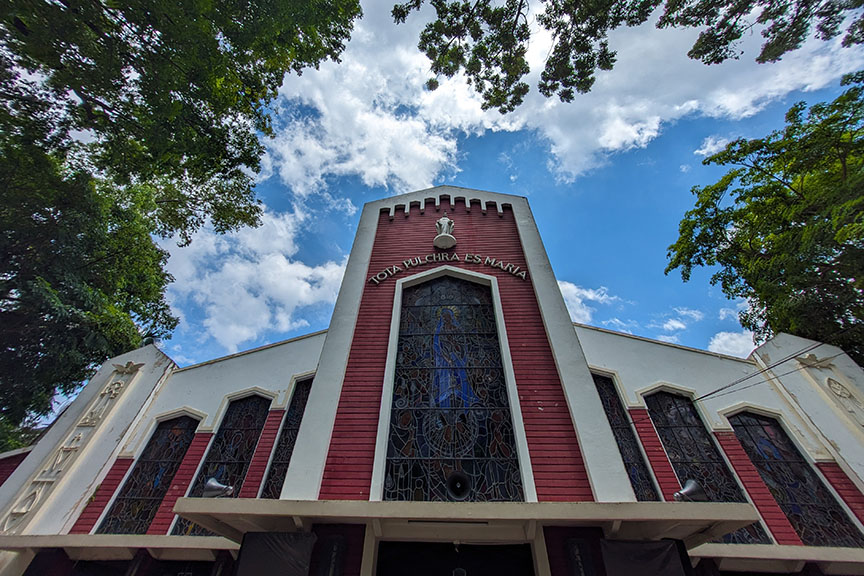CAGAYAN DE ORO CITY (MindaNews / 27 Sept)— Four of the biggest private schools here have closed on Tuesday and asked their students to once again revert back to online classes following an increase in the number of their constituents with flu-like symptoms, with one of the schools attributing the sickness to the deadly Nipah virus.
 The Immaculate Conception Church inside the Xavier University campus in downtown Cagayan de Oro City. MindaNews photo by BOBBY TIMONERA
The Immaculate Conception Church inside the Xavier University campus in downtown Cagayan de Oro City. MindaNews photo by BOBBY TIMONERA
City Health Officer Rachel Dilla, meanwhile, said they are encouraging residents to go back wearing face masks, frequent hand washing and proper cough etiquette similar to what they did during the COVID-19 pandemic.
The four schools—Xavier University, Liceo de Cagayan University, Lourdes College and Corpus Christi School—reported that many of their students got sick with “flu-like symptoms including fever, cough and body aches.”
Dr. Alain Marc Pelaez Golez, Liceo president, said the suspension of classes would remain “until further notice.”
Lourdes College principal Evelyn Mosqueda said their entire campus in Hayes Street and Barangay Macasandig would be disinfected Wednesday and advised their students not to go to school.
“Due to the number of students and personnel who are having fever and cough, nobody is allowed to enter the school,” Mosqueda said.
Mark Alfonso del Fierro, Corpus Christi School director of operations, said that as precautionary measure, the school decided that online classes would be conducted among their pre-schoolers, elementary and high school students from September 27 to 29.
Dulce Dawang, Xavier University vice president, said holding classes online would reduce “physical interactions and potential exposures” among students and teachers.
“This shift will allow us thorough cleaning and sanitization of our facilities,” Dawang said.
The World Health Organization said in its website that the “Nipah virus can be transmitted to humans from animals (such as bats or pigs), or contaminated foods and can also be transmitted directly from human-to-human.”
It further said that case fatality rate is “estimated at 40% to 75%.”
The WHO said that “fruit bats of the Pteropodidae family are the natural host of Nipah virus.
There is no treatment or vaccine available for either people or animals. The primary treatment for humans is supportive care.”
It was first discovered more than two decades ago with cases seen in Malaysia, Singapore, Bangladesh, and India. At present, an outbreak was reported in the southern Indian state of Kerala.
The Centers for Disease Control and Prevention (CDC) in the United States said that “the illness initially presents as 3-14 days of fever and headache, and often includes signs of respiratory illness, such as cough, sore throat, and difficulty breathing. A phase of brain swelling (encephalitis) may follow, where symptoms can include drowsiness, disorientation, and mental confusion, which can rapidly progress to coma within 24-48 hours.”
The move by the four schools to suspend classes prompted health authorities here to issue statements that the Nipah virus has not reached Cagayan de Oro and the Philippines.
Dr. Ellenieta Gamolo, regional director of the Department, said there is no confirmed case of the virus in the country although there is an increase in the number of cases of flu-like symptoms among students and teachers in the city.
“It is not conclusive to declare the Nipah virus as the causative agent for the increase of coughs and fever cases,” Gamolo said. (Froilan Gallardo / MindaNews)
